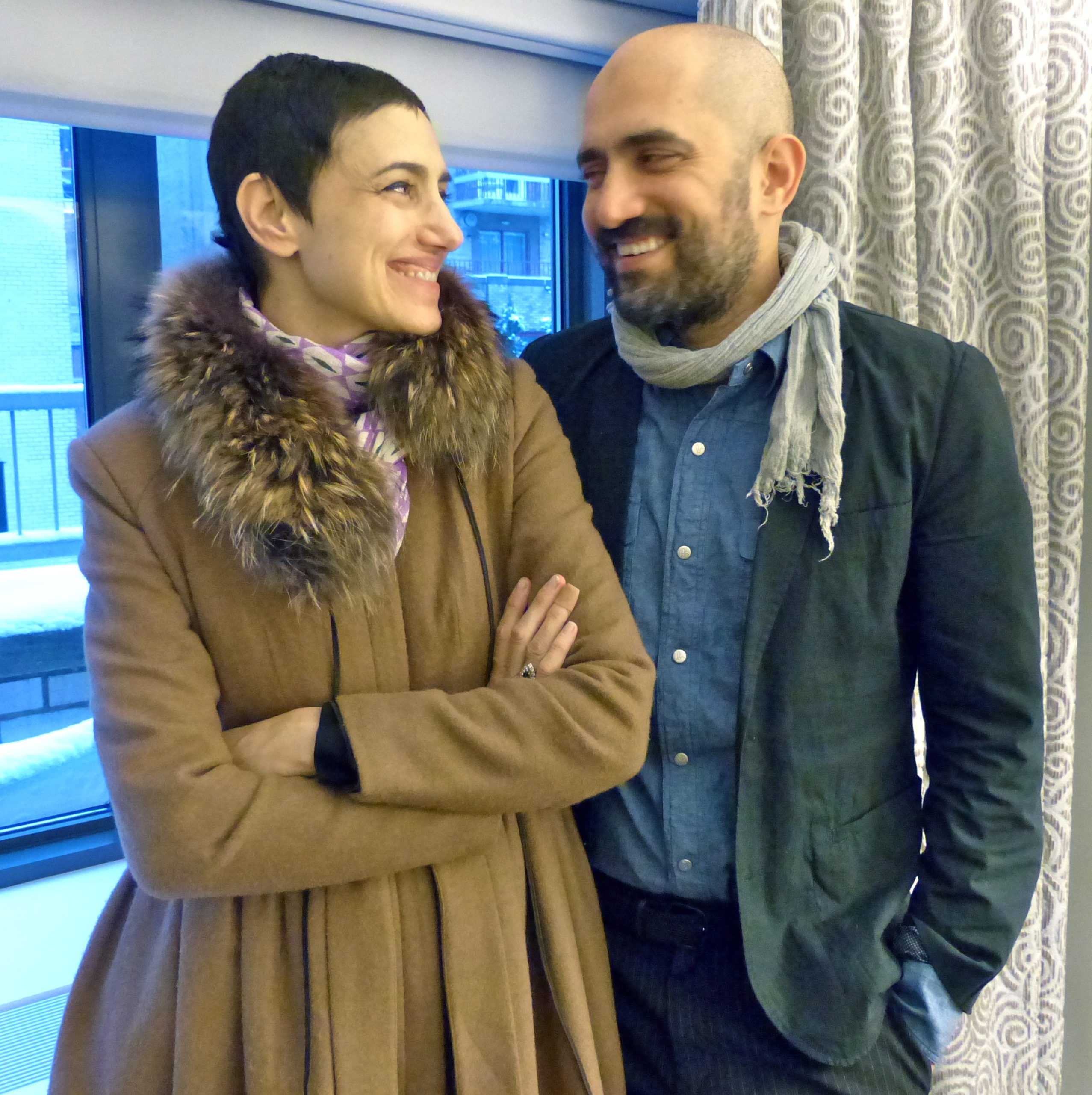
Get Thee to “Gett”
“Gett” leaves almost no one in the claustrophobic courtroom unscathed – wife, lawyer, witnesses. In their tight community of Moroccan Jews, everyone knows everyone else’s business. When pushed to drag up dirt in the pursuit of justice, just about everyone does. Even the personal life of Viviane Amsalem’s lawyer goes on trial.

Photo by Amy Stone
This is the final film in the trilogy from brother-sister team Shlomi and Ronit Elkabetz. The first two films were loosely biographical features based on their mother, a Moroccan-born Jew who hoped for a freer life in Israel. Shlomi, 42, and Ronit, 50, co-wrote and co-directed “Gett.” Ronit, one of Israel’s well-known actors, stars as Viviane.
Speaking at the film’s New York debut at last month’s New York Jewish Film Festival, Shlomi Elkabetz said the first two films were personal. The third is political. “Gett” has been playing to packed theaters since opening in Israel last fall. Israelis flocked to the film, Shlomi said, in part because they wanted to see what might lie in store for them behind the doors of the divorce court, closed to the public. In fact, the sibs Elkabetz gathered their information from stationing themselves outside the courtroom door, gaining entry only once.
Viviane Amsalem is truly on trial in an almost Alice-in-Wonderland travesty of justice. The three rabbis hold court from on high, looking down from their judicial bench emblazoned with the seal of Israel’s Ministry of Religion. Those coming before them are infantilized at smaller-scale desks and chairs that look like they were borrowed from a schoolroom. Justice seems devoid of dignity, let alone compassion. One judge, frustrated by this case that will not end, simply climbs down from the bench and walks out.
“Gett” has ignited such outrage against divorce Israeli style that the February national meeting of Israel’s rabbinical divorce lawyers is screening the film. And, according to Shlomi Elkabetz, the courts have finally yielded to pressure to reveal the number of Jewish women waiting for divorces for more than 18 months. The number is an astounding 45,000.
If “Gett” is firing up Israelis to see their country’s divorce law as a violation of human rights, it speaks well for the film industry. Recipient of the country’s top cinematic awards, “Gett” was Israel’s (unsuccessful) Academy Award entry for this year’s best foreign language film.
In fact, “Gett” may be the emotionally powerful catalyst that will build national support for giving women a voice under divorce law, efforts that have been under way for decades.
During the Q&A following the festival screening, someone asked if divorce in Israel was a moneymaking industry the way it is in the U.S. Of course it is. The industry is extortion – husbands refusing to give their wives a divorce without receiving hefty sums of money.
For theatrical screenings see http://www.musicboxfilms.com/
For trailer see https://www.youtube.com/watch?x-yt-ts=1421782837&x-yt-cl=84359240&v=9a4dJZtCl1Q.
For more on Jewish divorce, getts, and ideas for change, see Lilith’s article, “Man’s Absolute Right is Absolutely Wrong.”
Make sure to watch for ongoing coverage in Lilith Magazine and here on the Lilith blog.
Meanwhile, Agunot and Jewish Divorce on the website of JOFA (Jewish Orthodox Feminist Alliance) http://www.jofa.org/Advocacy/Agunot_Overview/



